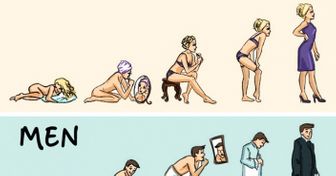I has my first 7wks ago at 34. I had a csection but that's only bcuz she didn't turn. Plus I wanted one. Didn't feel a single contraction so no pain at all. And on the 2nd day after I had recovered and waking about, and within 5days back to prepregnacy body. So thumbs up for babies in your 30s 😃
10 Advantages and Risks You Might Face If You Give Birth in Your 20s vs Your 30s
For thousands of years, women have been getting pregnant and bearing children in their teens and early 20s, but lately the average age of mothers giving birth has changed to be in their 30s. In fact, in 2017, almost half of all births in England and Wales were to mothers who were 30 years old. Modern medicine allows women to choose to postpone having babies, but there are benefits and risks that come with getting pregnant in their 20s versus their 30s.
We at Bright Side looked at some studies and broke down the major pros and cons of having babies when you’re in your 20s and 30s, so that you can decide when the best time is for you to become a mother.
Advantages of giving birth in your 20s.
1. You’re most fertile, hence have the best chance at getting pregnant.
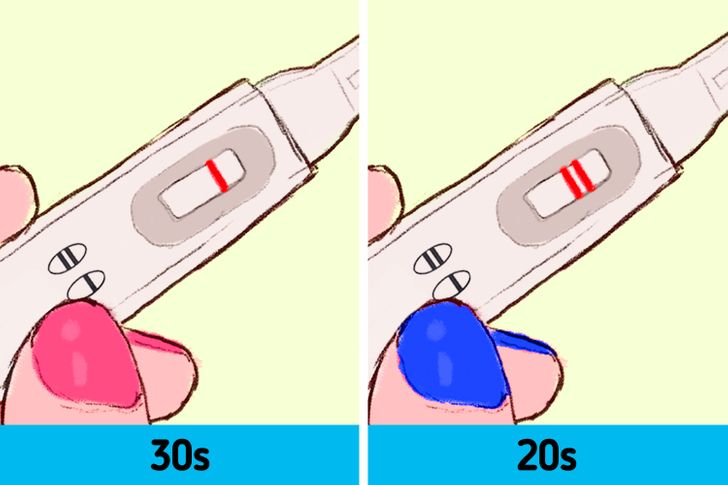
At age 25, you have a greater odds at conceiving after 3 months of trying (about 20%) than when you reach 35 (it goes down to about 12%). Women are born with all the eggs they’ll ever have, about 1 million. Fertility starts to slowly decline around age 32 and this decline gets faster after 35. At age 37, you’re estimated to have around 25,000 eggs left.
2. Lower chances of miscarriage and other pregnancy risks.
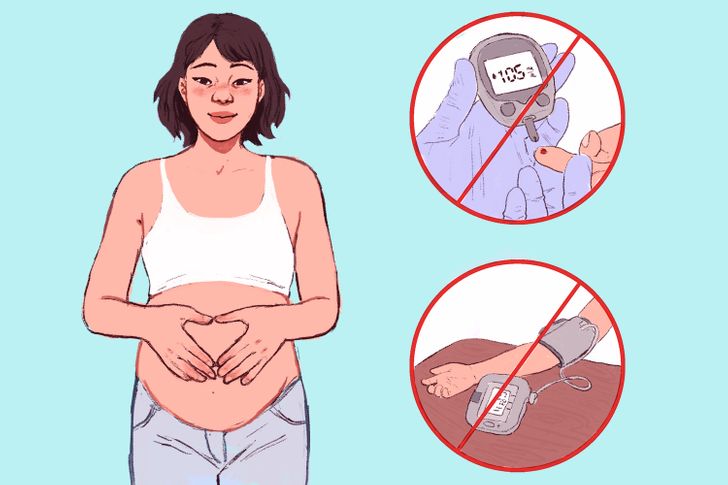
Unlike women age 35 and above, younger mothers are less likely to develop diabetes and high blood pressure when they’re pregnant. Without these problems, and thanks to the higher quality of your eggs when you’re in your 20s, you’ll have less of a risk of miscarriage and stillbirth.
Advantages of giving birth in your 30s
1. You’re likely to earn more money, so you’ll have more to spend.
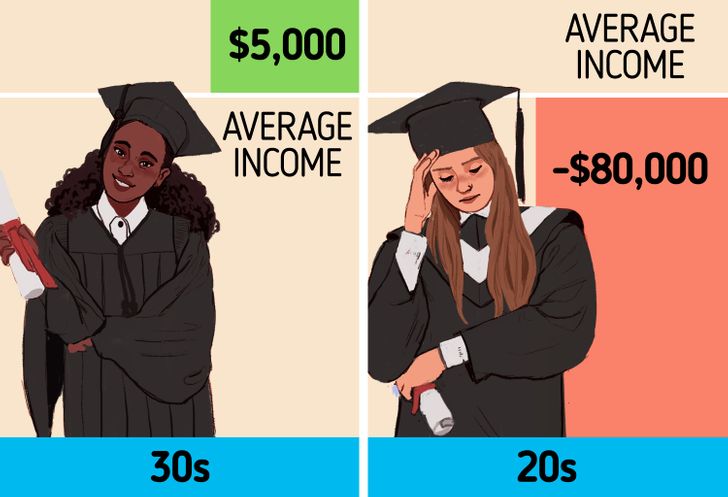
You would only be starting out in your career when you’re in your 20s, so taking care of a baby can be more costly than if you’re more financially stable in your 30s. And according to a Danish study, first-time mothers age 31-34 with a college degree would earn about $5,000 more than the average income over their lifetime. Those who had babies before they were 25, on the other hand, would earn about $80,000 less.
2. You’re more likely to have twins (or triplets)
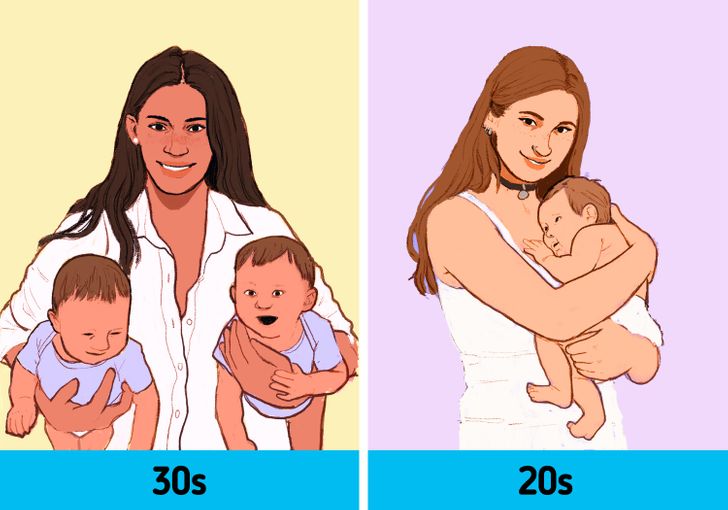
Although this can arguably be a downside, having multiple pregnancies means that you can be a parent to more than one kid when you’re more mature and ready. It’s good news if you want more than one child, but only want them after you reach your 30s. After all, fertility declines by then, but the chance of having twins increases with age because hormonal changes cause the release of multiple eggs at the same time.
3. You might live longer.
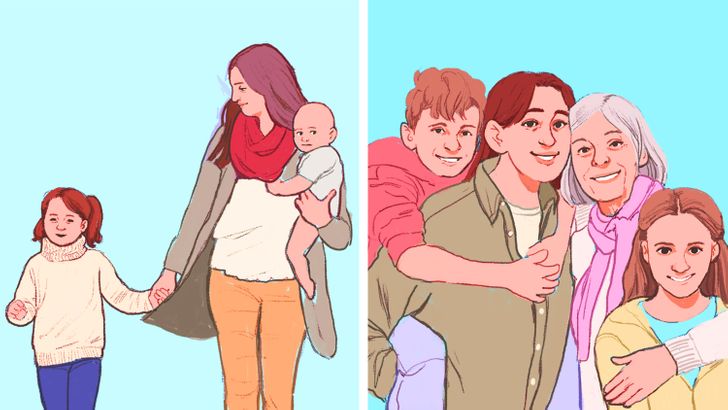
A study found that women who had their last child after the age of 33 were twice as likely to live past 95 compared to women who had their last child earlier. So postponing pregnancy gives you the benefits of not just improving yourself when you are in your 20s and earning more in your lifetime, but also living longer. This means that you’d have more years to see your kids and family grow.
4. Your baby might be more intelligent and taller.
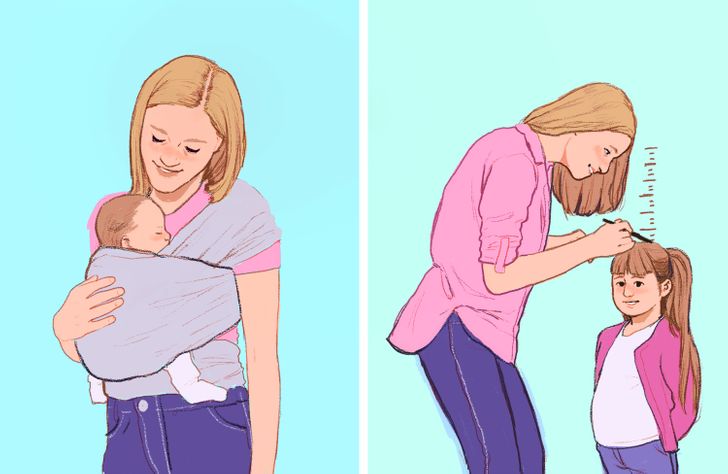
A UK study found that women who have their firstborns between the ages of 30-39 are more likely to have smarter children than mothers age 20-29. Another bit of research discovered that older mothers are likely to have taller children too. Since most people value those with higher intellect and stature, it may be worth waiting until you’ve reached 30 before giving birth.
Risks of giving birth in your 20s
1. It might be more tiring psychologically.
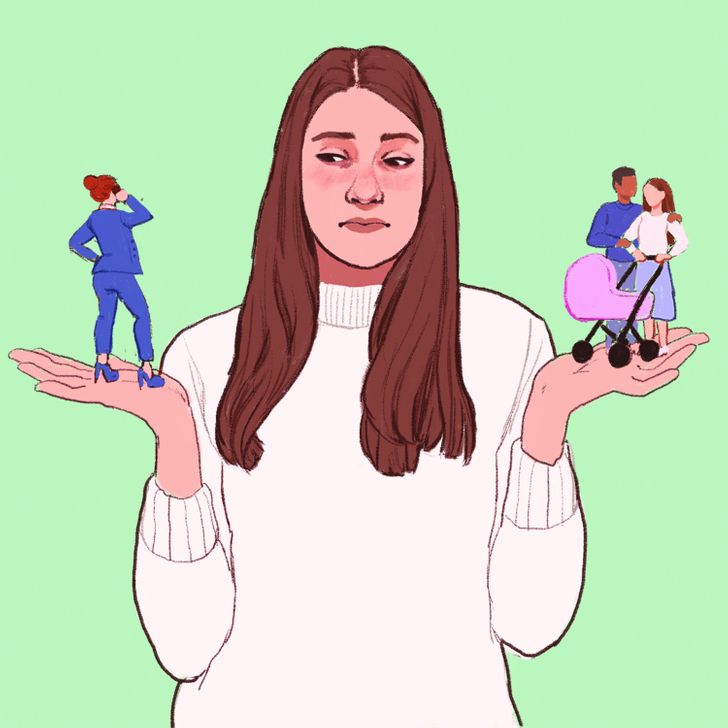
Your 20s are the best years for you to discover yourself and what path you want to take in your life. A baby during these years could force you to take a break in your career or hold you back from getting the promotion you’ve been working hard for. There could also be relationship issues that arise from the shared responsibilities of caring for the baby. Compromise isn’t easy, especially when both are just figuring out your lives.
2. You might have worse health outcomes later in life.
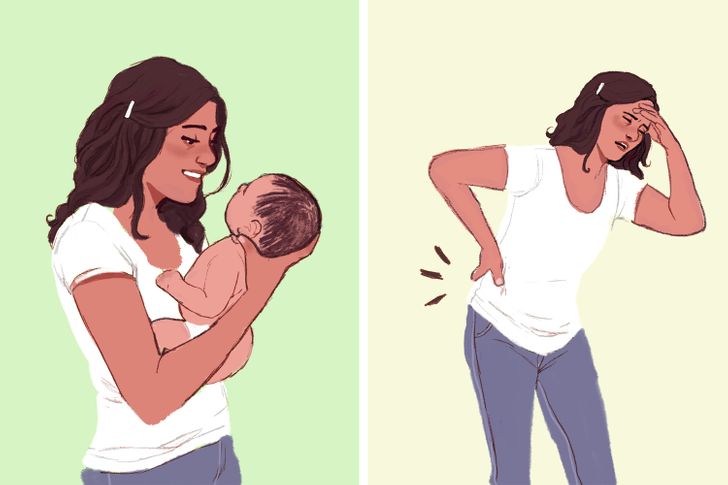
There appears to be a link between the health of a mother and the age she had her first birth. The more a woman delays her first pregnancy, the better her health is predicted to be. The maximum health was predicted for mothers who had their first birth around the age of 30. So younger mothers may risk having less than ideal health and may suffer from more aches and pains.
Risks of giving birth in your 30s
1. You’re more likely to need a C-section.
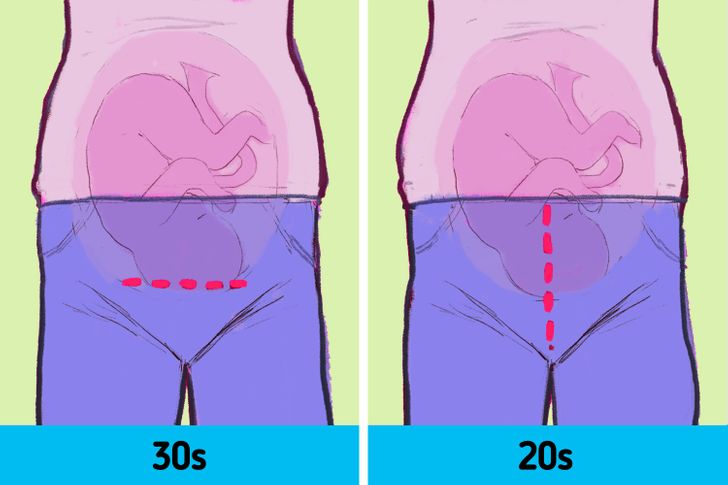
Since older mothers have a higher risk of pregnancy-related complications, this may make cesarean delivery necessary. For example, having health problems like high blood pressure, mentioned above, may lead to the surgical delivery of the baby. This delivery is common, but it comes with added risks such as longer recovery time compared with natural birth.
2. There’s a higher chance your babies may have complications.
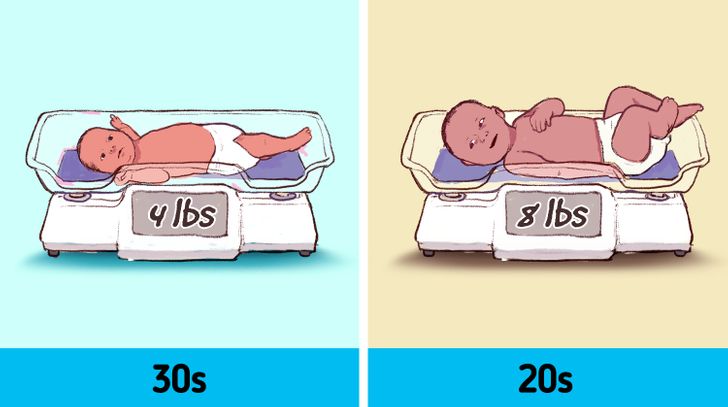
You’re more likely to have a lower birth weight baby and a premature birth. These can be caused by having twins. Premature babies, especially the ones born earliest, often have issues like breathing problems, impaired learning, and hearing problems. There’s also a higher risk of chromosomal abnormalities that can lead to a baby being born with health conditions.
There is no one perfect age to bear a child.
From these, we can see that there is no one-fits-all answer as to when is the best age for women to give birth. It all depends on each and every woman’s priorities. Perhaps the best age for you to be a mother is whenever you’re ready to face whatever hurdles that come with the pregnancy.
When did you have your firstborn? What age do you think is the best for a would-be mother to have a baby?
Comments
I saw the photos of your baby you posted,what a sweetie you've got 🥰
I don't think I would ever wanna be a mother, I am scared of childbirth and raising a child. P.S. I am only 16
I think at one moment you can change your mind, your opinion might change! :)
i hope so :)
I believe the best age to get birth is when you are psychologically and physically ready for it :)
Related Reads
15+ Comics That Show How Modern Life Is Different From How Our Parents Lived
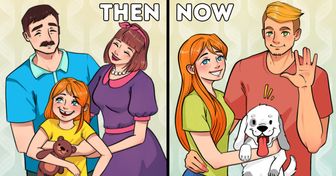
15 Life Situations That Used to Be Normal and Now Look Wild
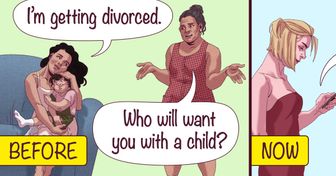
23 Hilarious Reactions to a Pregnancy Announcement Caught On Camera

15 Comics From a Cheerful Mother That Can Make You Laugh Even If You Don’t Have Children
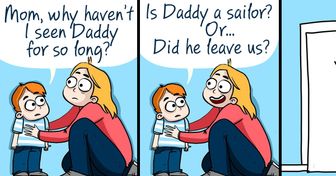
14 Funny Comics That Prove All Moms Deserve a Special Award for the Job They’re Doing
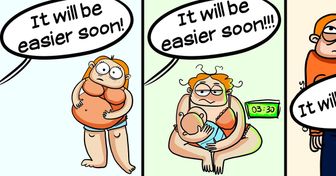
14 Controversial Comic Stories With a Pinch of Sarcasm and Dark Humor

9 Pregnancy Do’s and Don’ts That’ll Help You Have a Healthy and Bright Child
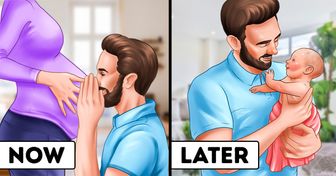
12 Things That Could Only Happen in the Modern World

I Refuse to Pay for My Daughter’s Wedding After She Chose Her Stepdad to Walk Her Down the Aisle
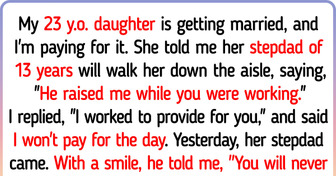
12 Revelations From Kids That Sent Shockwaves Through Their Families
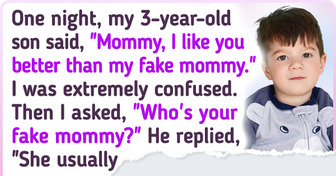
15 Stories About First Love That Had an Unexpected Twist Years Later
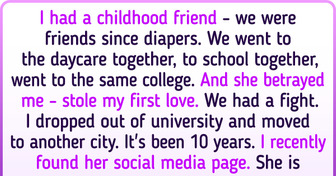
Men And Women — We Are So Different
